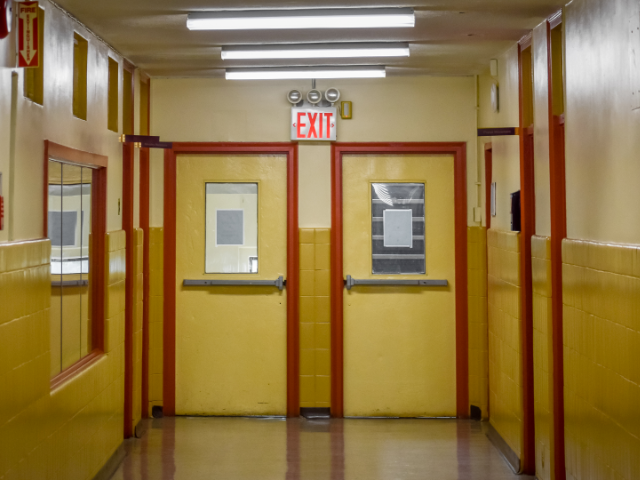Having an emergency preparedness plan in your IEP is essential. It was March 2018; the horrific school shooting in Parkland had happened a month before. Even though I live in a completely different state, we were stunned and affected by what happened. Our district, like many others, was inundated with questions regarding school safety. After all, we knew we were not immune.
On February 27, 2012, a neighboring community experienced a shooting at a high school. Six students were shot. Three of them died. You never think it will happen “here” …until it does. Our district held a meeting in the high school auditorium to try and put parents’ minds at ease. I can’t tell you how well it worked for everyone else, but as the mom of neurodiverse children, I was more frightened coming out of the meeting than I was going into it.
Emergency Preparedness Plan is more than Just School Shootings
When you were in school, there were likely fire drills, maybe tornado drills, and other natural disaster-related drills that happened at any given day or time. Hurricanes can spawn tornadoes. Many disasters can take out power or disable communication systems. Do you know the emergency preparedness plan for your disabled child if that happens while in school? If not, you have the right to ask.
What’s Your Child’s Emergency Preparedness Plan?
If your child is on an IEP or has a 504 Plan, I strongly recommend asking your school district what emergency preparedness plans are in place for these situations. It would help if you thought about how that would apply to your child and their particular circumstances. You might be a bit surprised at what you find.
Emergency Preparedness Plans should be posted on a district website for parents to read. However, some districts do not like to make their plans available to the public for various reasons. You still have the right to ask about the plan if your child is a student at a district school. Remember, ask for it in writing. You can do this in a Parent Concerns letter before an IEP meeting or anytime you want to revisit the plan. Bring it up at the actual IEP meeting.
If the team doesn’t address it, write that in your follow-up letter after receiving the Prior Written Notice form. If you are not satisfied with your district’s plan, ask for accommodations to be made, and keep pressing the issue (in writing!) until you can come to a mutual agreement.
An IELP – Individualized Emergency and Lockdown Plan
Ask for a document called an IELP to be added to your child’s IEP. It should consider all your child’s specific needs. For instance, your child might need to practice emergency drills more than neurotypical students. They also might need to practice them in various classes and rooms (the cafeteria isn’t the same as math class). Provisions may need to be made if your child takes medications and cannot be denied access to them in an emergency (which could take hours to resolve). An IELP can also include support such as comfort items which may help calm students with Autism, anxiety, and other issues. No one knows your child better than you do. You should be a part of this planning.
Considerations for an Emergency Preparedness Plan
The usual “Run, Hide, Fight” options that neurotypical children are taught may not be physically possible for your child. Your child may not be able to process information quickly. They may not be able to run or navigate stairs. They may have trouble following verbal instructions. What would happen if a police officer yelled at your child to put up their hands? Could they do it? Would your child be able to be quiet while hiding in a closet, classroom, or bathroom for an extended period?
If you know these things aren’t possible for your child, ask your school to make specialized plans in writing for them. If they do not, make sure you write about it in your response letter to the PWN. Repeat in that letter what reasons they gave you for not writing an IELP. Then, if all else fails, teach your child to look for options independently. This alternative is less than ideal, but if you don’t find it satisfactory for your child who uses a wheelchair to stay parked in a second-floor hallway while a fire rages, a tornado bears down on the building, or a school shooter runs loose, in the hallways. It’s up to you to help your child come up with a solution.
Options for an Emergency Preparedness Plan
If your child can handle it, go through different scenarios and give them options. Can they safely break a window with something and get out that way? Practice ways to hide with them if escape is not an option. Ask your local police station if they have a program to register children with neurodiversities to try and keep them safe in a public emergency. Consider getting a medic alert bracelet or dog tags for them. Lastly, teach your children to recognize what police officers look like and come out of a dangerous situation with their hands up.
I am all about plans. I like to have backup plans to my backup plans. Realize that you might not always be with your child in the face of danger. Then, do whatever you can to help keep your child safe. You can also visit me here on Vitalxchange at Plan A-Z. Let’s discuss what your child’s IELP should look like.
Connect with Jennifer!




